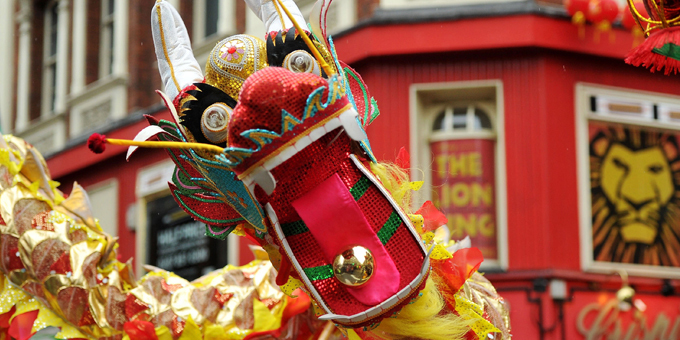Our Terms & Conditions | Our Privacy Policy
Trade between China and Māori explained – Waatea News: Māori Radio Station

Role Funding:
Trade between Māori and China is fast becoming one of the most dynamic areas of international commerce for Aotearoa New Zealand. As Māori enterprises expand their global reach, China has emerged as a key market for iwi-owned and Māori-led businesses-particularly in sectors such as forestry, seafood, horticulture, dairy, tourism, and cultural products.
But this growing relationship is about more than exports and profits; it’s also about indigenous-to-indigenous connection, values-based trade, and shared understandings of collective prosperity. Māori trade with China reflects both a modern economic strategy and a deep cultural approach to international engagement. Since the signing of the New Zealand-China Free Trade Agreement in 2008, Māori exporters have increasingly taken advantage of the opportunities that China’s large consumer market offers. The value of Māori exports to China has grown steadily, with some iwi businesses forming direct relationships with Chinese partners, importers, and investors.
Māori businesses, including those under iwi post-settlement entities like Ngāi Tahu, Tainui, Ngāti Porou, and Te Rarawa, are now regularly engaging in trade delegations and cultural exchanges with Chinese counterparts. They export high-value goods such as:
- Kaimoana (seafood): including pāua, crayfish, and mussels.
- Dairy and honey: particularly mānuka honey, which is prized in China for its health properties.
- Wood and timber: with Māori having significant holdings in forestry and processing.
- Horticulture: including Māori-grown kiwifruit, blueberries, and other fresh produce.
The Māori economy is estimated to be worth over $70 billion, and China remains its largest international trading partner. What sets Māori trade apart is the strong emphasis on kaupapa Māori values-including whanaungatanga (relationships), manaakitanga (hospitality), and kaitiakitanga (guardianship). In dealings with Chinese businesses and officials, Māori often approach trade as a long-term relationship rather than a transactional exchange.
This aligns well with Chinese concepts such as guanxi (relationship building) and respect for ancestry and tradition, creating cultural common ground. Māori delegations visiting China often include kaumātua, perform pōwhiri and haka, and bring taonga to gift, reinforcing the cultural and ceremonial dimension of trade.
At the same time, Chinese delegations hosted in Aotearoa are welcomed onto marae, offered hospitality, and introduced to Māori values, creating deeper mutual respect. Despite the growth, Māori trade with China is not without its challenges:
- Geopolitical tensions: As global tensions increase between China and the West, Māori exporters must navigate foreign policy pressures while maintaining commercial neutrality and sovereignty.
- Intellectual property protection: Safeguarding indigenous branding, design, and mātauranga Māori (traditional knowledge) in international markets like China requires vigilance and legal support.
- Sustainability and ethics: Māori enterprises are committed to kaitiakitanga, and must ensure their products and supply chains uphold environmental and ethical standards-even when engaging in high-volume markets.
Additionally, some Māori leaders have expressed concern about foreign investment in Māori land and assets, urging iwi to protect long-term sovereignty while still benefiting from global capital and partnership. To strengthen Māori trade representation, Te Taumata, a collective of Māori trade leaders, was established to provide advice and advocacy on international agreements, trade access, and indigenous engagement. Te Taumata ensures that Māori voices are heard at the negotiating table and that trade policy reflects the interests of tangata whenua.
Māori have also taken part in high-level dialogues with Chinese government officials, industry groups, and other indigenous business networks across the Asia-Pacific region.
Looking ahead, there is growing interest in deepening Māori-China partnerships through:
- Digital trade and e-commerce, allowing Māori businesses to sell directly to Chinese consumers.
- Education and language exchange, supporting Māori rangatahi to study Mandarin and gain international experience.
- Joint ventures, including sustainable farming, aquaculture, and eco-tourism.
With shared respect for culture, heritage, and the collective good, Māori trade with China has the potential to grow not only economically, but also as a model of indigenous diplomacy and global leadership. Looking ahead, there is growing interest in deepening Māori-China partnerships through:
- Digital trade and e-commerce, allowing Māori businesses to sell directly to Chinese consumers.
- Education and language exchange, supporting Māori rangatahi to study Mandarin and gain international experience.
- Joint ventures, including sustainable farming, aquaculture, and eco-tourism.
With shared respect for culture, heritage, and the collective good, Māori trade with China has the potential to grow not only economically, but also as a model of indigenous diplomacy and global leadership.
Images are for reference only.Images and contents gathered automatic from google or 3rd party sources.All rights on the images and contents are with their legal original owners.


Comments are closed.